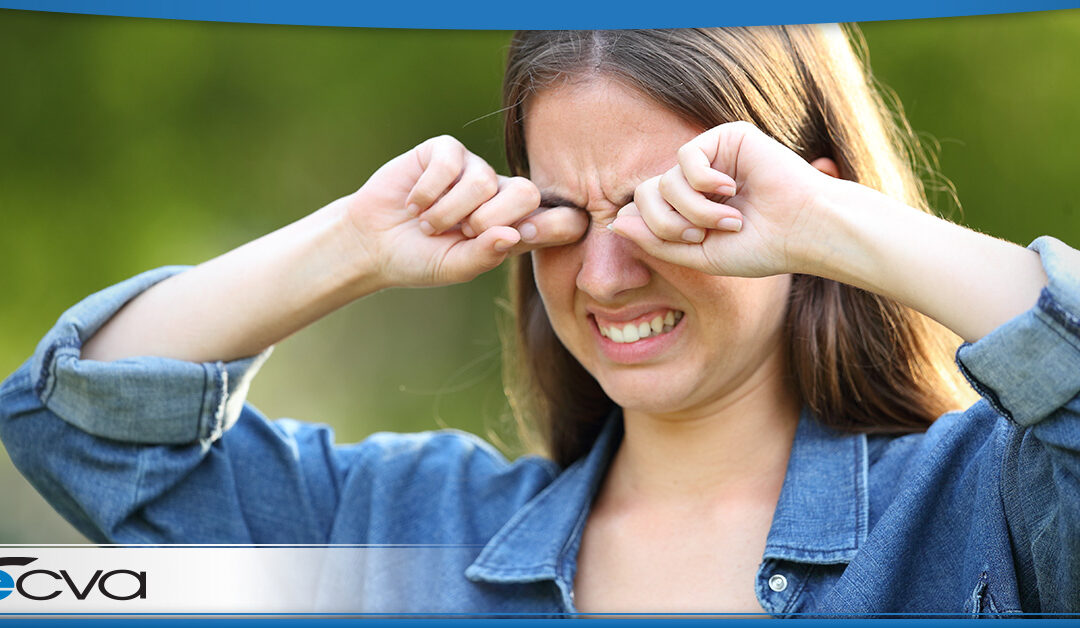Dry eye is a relatively common condition where tear production doesn’t sufficiently keep the eye lubricated. The cause can vary, though it usually falls into one of two categories. First, the eye may not produce enough tears. Second, the tear composition may not provide enough lubrication, even if the quantity is high.
For those that have dry eyes, finding relief is typically a priority. However, it’s also common to wonder whether dry eye is a serious condition. If you’re wondering whether you should be concerned about your dry eyes, what treatment options are available, and whether you should see your eye care provider, here’s what you need to know.
Are Dry Eyes Serious?
Dry eyes can be a serious condition for several reasons. First, the discomfort they cause can be disruptive to daily life. Itching, burning, and stinging eyes are distracting at a minimum. Second, they can harm visual acuity, as focusing may become challenging.
Finally, dry eyes can increase a person’s odds of developing certain medical conditions. Your risk of an eye infection generally increases. In some cases, abnormal blood vessel development can happen. Scarring and corneal thinning are also possible side effects. In any of these scenarios, permanent vision changes may occur, especially if the dry eyes are left untreated.
Home Treatments for Dry Eyes
If you have mild to moderate dry eye, some home treatments may be viable. Over-the-counter lubricating eye drops are the most common option, as they’re readily available and reasonably affordable.
Other steps may also help. For example, limiting screen time can help. People tend to blink less when viewing screens, which can make dry eyes worse. Having a humidifier may also help, particularly if you live in a dry climate or during the winter when heaters are in use. This increases the amount of moisture in the air, which can slow tear evaporation.
Wearing wraparound sunglasses when outdoors can make a difference, too. That helps keep irritants out of the eye and shields your eyes from the wind. Increasing your intake of omega-3 fatty acids could also potentially provide some relief.
Ophthalmic Treatments for Dry Eyes
If you have moderate to severe dry eye, certain ophthalmic treatments may be more effective than home remedies. There are several prescription eye drops that can treat potential causes of dry eyes. These can include anti-inflammatories, steroids, immunosuppressants, and more.
Certain other medications might work in specific scenarios. For example, there are oral tear-stimulating drugs that can increase tear production. You may also be a strong candidate for eye inserts that work similarly to artificial tears.
Punctal plugs that intentionally block tear-draining ducts to keep tears in your eyes longer may be a viable treatment option. Medical procedures that unblock clogs tear glands might be worth considering as well.
When to See Your Eye Care Provider
Generally, if your dry eye symptoms are disruptive and don’t improve after using home remedies, it’s best to see your eye care provider. They can examine your eyes to determine the potential cause, allowing them to develop an effective treatment plan based on your specific needs.
At ECVA, the safety and health of our patient’s eyes are our priority. If you are experiencing symptoms of dry eye or simply haven’t seen your eye care provider in the past year, the ECVA team is here to help. Schedule an appointment at your closest ECVA clinic today.


